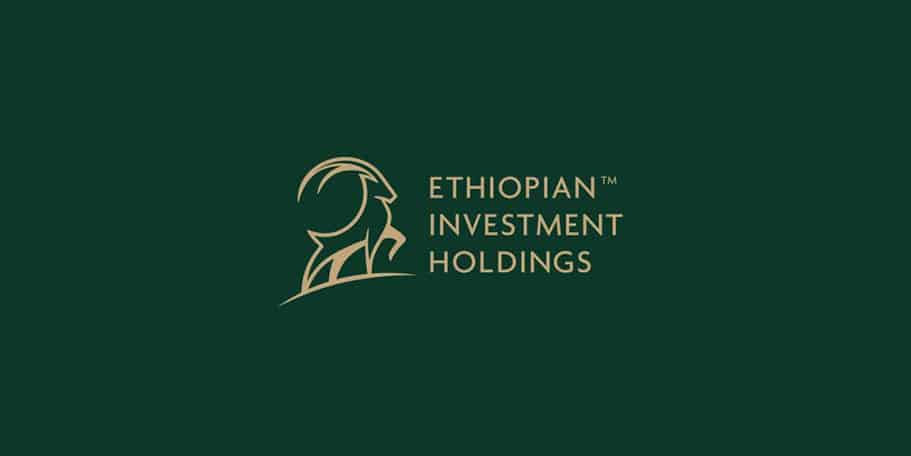
Ethiopian Investment Holdings (EIH) is positioning itself to pursue port investments beyond Ethiopia’s borders, with the sovereign wealth fund emphasizing the need for stronger collaboration with the Ministry of Foreign Affairs to navigate the political and diplomatic complexities entailed by the venture.
Speaking to officials during a recent consultative forum, DidimosGetachew (PhD), an investment advisor at EIH, said the institution is actively exploring strategic logistics projects including new ports and trade corridors.
However, he cautioned that EIH cannot operate in isolation from Ethiopia’s foreign policy apparatus and its backing.
“EIH has the mandate to facilitate cross-border investment and engage in investments in foreign countries,” Didimos told The Reporter. “But when it comes to ports and strategic logistics infrastructure, this is not simply about economic calculations. These are investments that are deeply tied to politics and diplomacy. That’s why guidance from the Ministry of Foreign Affairs is essential.”
He also stated that EIH is looking for investment opportunities that can bring about significant economic and social transformation beyond just building another port.
– Advertisement –
“That’s why investments of this nature are heavily tied to politics and diplomatic relations, and therefore require close guidance from the Ministry of Foreign Affairs”.
Economists have long cautioned that with over 95 percent of Ethiopia’s import and export trade flowing through congested ports in Djibouti, the country’s reliance on a single maritime route has become a bottleneck—both economically and strategically.
The IMF and World Bank have repeatedly flagged Ethiopia’s high logistics costs, which exceed 25 percent of GDP, as a critical constraint to trade competitiveness.
A quarterly economic profile published by the United Nations Development Program (UNDP) in April 2025 indicated that Ethiopia’s goods exports have the potential to reach USD 10 billion by the year 2030, with manufactured goods taking a predominant share, but warned thatmanufacturing remains constrained by the trifecta of available land, expensive capital, and complex logistics.
Recent geopolitical developments further amplify the urgency. With new port projects underway in Berbera (Somaliland), Lamu (Kenya), and Eritrea’s Massawa and Assab, regional competition is heating up. Analysts argue that Ethiopia’s active presence or absence in these emerging logistics hubs will likely shape its trade access and geopolitical relevance for decades to come.
However, according to the EIH advisor, the sovereign wealth fund’s interest in foreign ports is not driven by opportunism but by a long-term vision to secure Ethiopia’s economic competitiveness and regional integration.
“We are asking: What strategic opportunities exist for Ethiopia beyond its own borders? How can we position ourselves in regional logistics to trigger real economic and socio-political transformation?” he said. “These are not questions the Investment Holdings can answer alone.”
Although the Foreign Ministry is an important piece of the puzzle, Didimos revealed the relationship between EIH and its officials has thus far been limited.
“Over the past four years, the engagement between EIH and the Ministry has been limited. That must change,” he told The Reporter.
Didimos noted that while diplomatic groundwork has historically been the sole domain of the Ministry, emerging investment dynamics—especially in infrastructure—require a joint approach.
“A lot of investment opportunities are opening up, and we, as EIH, must analyze and engage with these jointly with the Ministry,” he said.
The EIH advisor emphasized that economic analysis should follow, not precede, diplomatic groundwork.
“Before any investment decision is made, diplomacy must come first. We need to ask: What kind of relationship do we have with the host country? What’s the political climate? What doors are open or closed diplomatically? That’s where the Ministry’s role is indispensable,” Didimos told The Reporter.
He clarified that EIH is not rushing into port deals, but initiating exploratory discussions that must mature into coordinated strategy.
“What we’re doing now are initial discussions. The idea is to send a clear signal that this cannot be EIH’s work alone. We must act together,” said Didimos. “EIH has the mandate. The Ministry has the diplomatic leverage. Let’s align our efforts and bring about something transformative.”
Analysts emphasize that with Ethiopia’s landlocked status placing increasing pressure on logistics capacity and trade competitiveness, shifting towards foreign port investment could mark a significant pivot in the country’s economic strategy if backed by coherent diplomatic support.
.
.
.
#Sovereign #Wealth #Fund #Eyes #Ports #Urges #Foreign #Ministry #Backing
Source link











